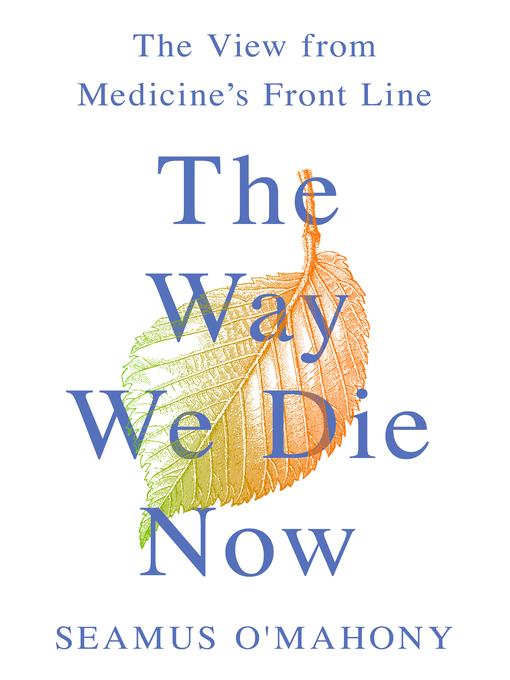
The Way We Die Now
The View from Medicine's Front Line
نمای خط مقدم مدیسین
فرمت کتاب
ebook
تاریخ انتشار
2017
شابک
9781250112804
کتاب های مرتبط
- اطلاعات
- نقد و بررسی
- دیدگاه کاربران
نقد و بررسی

Starred review from May 8, 2017
Irish gastroenterologist O’Mahony adopts an extraordinary view of end-of-life care in the 21st century, exploring the difficult conversation that many doctors have come to avoid in a world of consumer-friendly medicine. O’Mahony persuasively argues for telling dying patients “things they do not want to hear,” thereby becoming the “amicus mortis” who “tells you the bitter truth and stays with you to the inexorable end.” He writes from his own experiences with people dying in hospitals, as well as those of friends and family. O’Mahony also reflects on the accounts of writers and philosophers, including Phillipe Ariès, Ernest Becker, Christopher Hitchens, Ivan Illich, and Susan Sontag. He tracks the medical movement toward living wills and assisted suicide as “informed by a passion for personal autonomy: for control,” eloquently reasoning that “human agency has replaced the powers of nature, ‘majestic, cruel, and inexorable.’ ” Death is messy and always will be, he notes, and “eventually, inevitably, nature, or the syringe-driver, takes control.” The “over-medicalization” of modern dying is at the core of O’Mahony’s criticism; he maintains that doctors might better help their dying patients by giving up “the quest to conquer nature” and returning “to a core function of providing comfort and succor.” O’Mahony’s clear-eyed analysis is important, poignant, and immensely humane.

June 15, 2017
Gastroenterologist O'Mahony (Univ. of Cork Hospital, Ireland) examines the purpose and limitations of modern medicine, especially as it tends to dominate the end of human life. Drawing on his 30 years of experience, he considers the role of medical technology and intervention in an array of scenarios: resuscitation, intubation, and terminal care for patients with chronic illness, as well as the experiences of accidental, sudden, or premature death. The author clearly evaluates the fallibility of some procedures when death is inevitable, showing how familial attitudes influence medical decisions while also bringing a social and historical dimension to his reflections. This analysis summarizes Western perspectives of death and dying from cultural anthropologists Geoffrey Gorer and Ernest Becker, historian Philippe Aries, and social philosopher Ivan Illich. Their disparate works shed light on the communal manner in which death has been "tamed," denied, diminished and medicalized. The book concludes that religion and spirituality must complete what medicine cannot adequately accomplish. VERDICT A valuable and thoughtful treatment that effectively draws on O'Mahony's professional insights as well as his Irish Catholic upbringing to provide cglimpses into Western society's relationship with mortality.--Bernadette McGrath, Vancouver P.L.
Copyright 2017 Library Journal, LLC Used with permission.

June 1, 2017
Gastroenterologist O'Mahony focuses on the Lie: the tendency in wealthy Western countries to keep the terminally ill ignorant of imminent death and how this approach often undermines a more peaceful close to life. It also encourages overreliance on medicine, with much pointless treatment and many graceless deaths, such as putting extremely old and sick people in ICU units. Many Westerners view hospitals as dust bins meant to process all unpleasant medical situations. This, along with health care and legal systems that foment overtreatment, creates impossible situations, with doctors accused of overintervention, then being sued for giving false hope. Should nursing homes send declining patients to the hospital or let them stay in a familiar setting at the risk of the home being accused of neglect? O'Mahony shows how living wills and other directives meant to clarify end-of-life decisions can be misconstrued and how assisted suicide can be more about excessive control than dignity. Though he seems, at times, to view any fight against terminal disease as delusional, O'Mahony's thorough exploration of an increasingly urgent topic should create solid demand.(Reprinted with permission of Booklist, copyright 2017, American Library Association.)

























دیدگاه کاربران